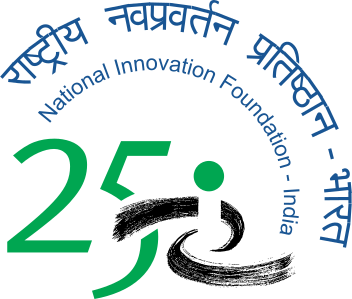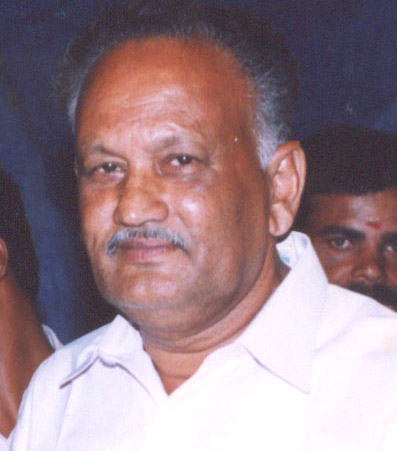Elarajan - Cardamom Variety
Genesis
In 1996, for the first time, he observed a white flower plant in his cardamom garden, which he had never heard or seen, and so he isolated it and multiplied it by vegetative propagation. At that time itself a lot people showed interest in it, but he did not want to distribute it, as he wanted to observe the results over a period. By 2001, he had raised around 800 plants, which were similar to the mother plant and bore white flowers. Same year, when experts from Indian Institute of Spice Research were visiting his area to inspect pepper, he invited them to his farm to have a look at his variety. They appreciated him for his efforts to develop this variety. Thereafter exposure in media started and subsequently he started selling his seeds 2003 onwards.Being financially sound Baby did not face any major problems and always had the support of family, friends and relatives. His wife and daughter-in-laws took personal care of the plants, from irrigation, manuring to performing associated farm practices. His wife specially likes this particular variety because of the enhanced taste and flavour. His three sons have been much interested in evolving a variety out of the white flowered mother plant and their involvement, interest and hard work has been instrumental in the evolution, multiplication and dissemination of this variety over years.
Innovation
The cardamom variety developed by Baby, belongs to Vazhuka type cardamom cultivars bearing purely white flowers, has high productivity than other cardamom plants and can be grown in waterlogged areas as well. The variety has wider adaptability to different shade conditions apart from having high production with good quality that is even higher than other Mysore and Vazhukka cultivars viz., Njallani, Green-bold, Palakkudi and Veeraputhara varieties, which are locally popular. It has sturdy plants, robust tillers and deeper root system, which makes it resistant to various biotic and abiotic stresses.The prominent features of the variety developed by Baby are (a) single tiller planted in the nursery giving rise to 30 tillers, (b) variety having seed last ratio of around 23-26, (c) recovery ratio of one kg dry cardamom from four and half kilograms of green cardamom (d) single plant yielding nearly 4 - 5 kg dry cardamom with size varying from 6 mm to 8 mm and (e) the oil percentage being 8.9 percent as against 6-7 percent in common varieties. The distribution of this variety started in 2003 when seeds were provided to 200 to 300 farmers from Idukki and surrounding districts of Kerala and border districts of Karnataka covering about 1000 acres of land. As a result, it has now diffused in Idduki, Wayanad (Kerala) and Chikmangalur (Karnataka) and some parts of Tamil Nadu.This variety has aroused the interest among the researchers, as it was believed that the peculiar color of cardamom flower attracts the insects for pollination, but now presence of white colored flower of Baby?s variety negates the whole concept.
Awards and Appreciations
Baby received a ?Certificate of Merit? for being the "Best Cardamom Cultivator" in the public function conducted in Kattappana Fest 2004 by Kattappan Gram Panchayat. He has also received a certificate of Appreciation from Asst. Director of Agriculture, Kattapanna for the new high yielding variety developed by him. Spices Board, Government of India has given him a certification mentioning the presence of white flowered characteristics is unique to farmer-bred variety.Baby, who has rich experience in plantation crops, desires to share his knowledge with the community. He mentions that ?as far as agriculture is concerned the selection of best quality seeds and technical inputs from research and development institutions are sufficient to prevent losses for the farmers?. The innovator?s ambition is to identify superior characteristics in cardamom plants and evolve newer varieties, which can be popularized to benefit the larger interests of the cardamom grower community.
Background
K.J. Baby has developed a white flowered variety of cardamom, which has higher yield, oil content and recovery ratio than the locally popular varieties.Baby is the native of Ettumanoor and presently resides at Puliyanmala. It was here where he was born in a farming family along with three brothers and two sisters. As a child, he was always interested in sports and had a special liking for football. Later when he was sixteen years old, his interest switched over to stitching, as he wanted to develop this skill. He continued this till getting married at the age of 24 years and then he took up agriculture as a profession.Baby, who studied up to class eighth, is 66 years now. His family consists of his wife, three sons and a daughter. Two younger sons (36 and 34 years) assist him in agriculture while the elder son (39 years) is a cardamom state manager elsewhere; daughter (41 years) is married.Puliyanmala is a small town, having around 60 per cent Tamil and 40 per cent Malyalee population chiefly comprising of agricultural labourers. The agricultural crops cultivated by the farmers in the region are cardamom, pepper, coconut and on a very limited area, arecanut, banana and lemon are cultivated.In 1965, when their land in Ettumanoor was bought by the government for establishing industrial estate, Baby?s family shifted to Puliyanmala and bought a cardamom estate of around 5 acres. At that time, the climate at Puliyanmala was colder and hostile so cultivation of pepper in this region was not feasible and so the family opted for the cultivation of a local variety of cardamom. It was in late 1970?s that the climate began to change to be a bit warmer so along with cardamom they started coffee and pepper cultivation.In 1982, he added 2.5 acres of land to his total holding through purchase and started growing cardamom. Somewhere around same time the prices of cardamom started to rise hence to maximize his profits, he also started making selection of cardamom so as to develop selections/ varieties that would yield higher. Their family is a joint family and the total land holding now is close to 20 acres. All of their land is under cardamom cultivation, white flower variety covers eight acres, while remaining area is under high yielding Njallani, which covers six acres while another new variety, which he claims to have developed recently covers remaining six acres.
Awarded by NIF
NA
NA
NA








